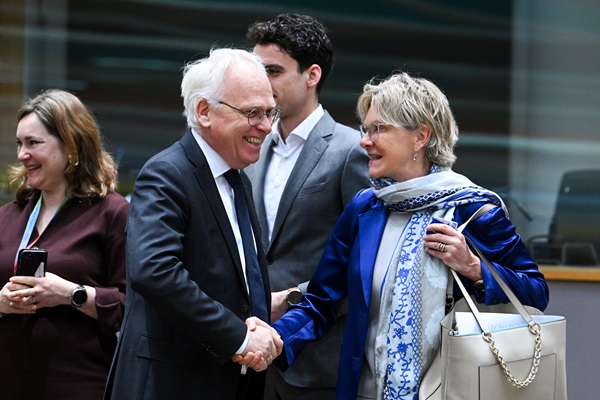 (L-R) Piet Adema, Minister for Agriculture, Nature and Food Quality, Netherlands; Martine Hansen, Luxembourg’s Minister of Agriculture, Food and Viticulture;
Credit: European Union
(L-R) Piet Adema, Minister for Agriculture, Nature and Food Quality, Netherlands; Martine Hansen, Luxembourg’s Minister of Agriculture, Food and Viticulture;
Credit: European Union
On Tuesday 26 March 2024, Martine Hansen, Luxembourg’s Minister of Agriculture, Food and Viticulture participated in the “Agriculture and Fisheries” Council in Brussels.
In response to concerns expressed by farmers and spikes in protests, ministers urgently approved a legislative proposal from the European Commission aimed at a targeted revision of the rules of the Common Agricultural Policy (CAP). This revision aims to simplify and reduce the administrative burden on farmers and to offer them greater flexibility in respecting certain environmental conditions, Luxembourg’s Ministry of Agriculture, Food and Viticulture noted.
Minister Hansen welcomed the roadmap: “The measures support our farmers and provide solutions to several problems linked to cross-compliance that our producers have requested as a priority, such as the abolition of the fallowing of 4% of arable land and its replacement by optional agro-environmental measures, simplifications for small farms or even crop diversification as an alternative to crop rotation.” The minister announced that the national strategic plan will have to be adapted quickly during this year to put these measures in place and asked the Commission to approve the modifications in question as quickly as possible.
Another key topic was the current situation in EU agricultural markets following the war in Ukraine. Before the discussions, Mykola Solskyi, Ukrainian Minister of Agrarian Policy and Food, addressed the Council. Martine Hansen expressed her solidarity with Ukraine. As for the situation on agricultural markets, the minister notes a stabilisation of input prices at a level 30% higher compared to the pre-war period 2020-2021. To counteract these high costs, Martine Hansen proposed increasing the EU's supply rate of plant proteins and reducing production costs through technological innovation and the circular economy.
Finally, the minister called for caution against any new measure of liberalisation of agricultural imports within the framework of new trade agreements which would harm the interests of European farmers.








